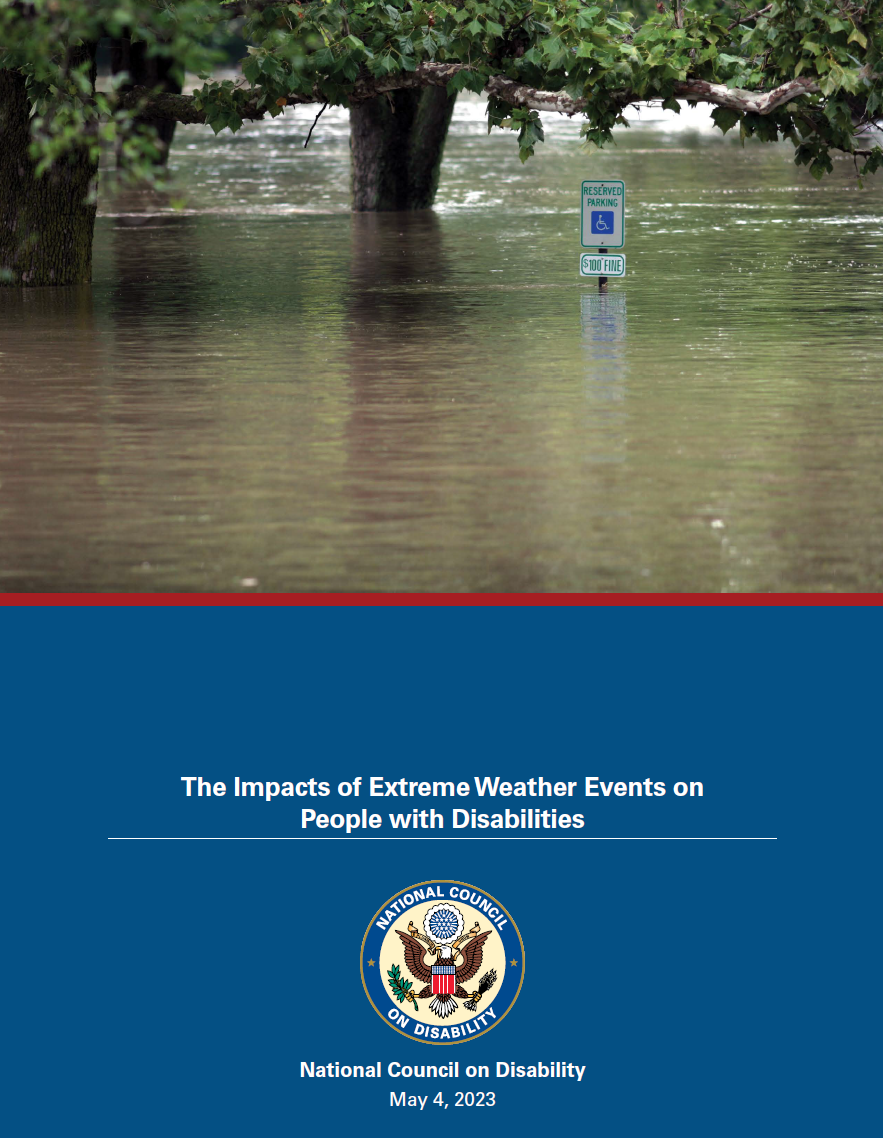The Impacts of Extreme Weather Events on People with Disabilities

May 4, 2023
SCOPE AND PURPOSE: Extreme weather events are increasing in frequency, severity, and cost. In 2022 alone, the United States experienced 18 separate billion-dollar weather disasters, including drought, flooding, severe storm events, tropical cyclone events, wildfire and winter storm events. During an emergency or major disaster people with physical, sensory, mental, or cognitive disabilities are disproportionately impacted. Despite this, the needs of people with disabilities are being overlooked in disaster management policy and planning. In this report, NCD examines the extent of compliance with federal laws and examines applicable federal programs and policies and their implementation in health care, housing, education, and emergency management. The report offers findings and recommendations to bring about critical policy and systems change intended to advance national disability policy goals and reduce casualties.
SUMMARY: This report examines federal health care, housing, education, and emergency management programs before, during, and after the President declares a major disaster under the Robert T. Stafford Disaster Relief and Emergency Assistance Act (Stafford Act), as well as the implementation and enforcement of disability rights laws. The report found that people with disabilities are disproportionately affected by extreme weather events and environmental hazards in ways that are often overlooked by state, local, tribal, and territorial (SLTT) governments. NCD examined SLTT governments’ noncompliance with federal rules and regulations despite legal requirements that programs and services funded with federal dollars be compliant with federal disability rights laws. As the population of people with disabilities are expected to grow, continued shortages in the availability of qualified healthcare providers and the limited availability of accessible and affordable housing will exacerbate poor outcomes for people with disabilities during future emergency declarations. Likewise, school districts and emergency management agencies consistently fail to integrate the unique needs of people with disabilities into emergency management policies. This results in unnecessary delays in providing supports and services to students with disabilities as well as ineffective coordination efforts with disability organizations and community- based organizations that assist people with disabilities during emergencies.

